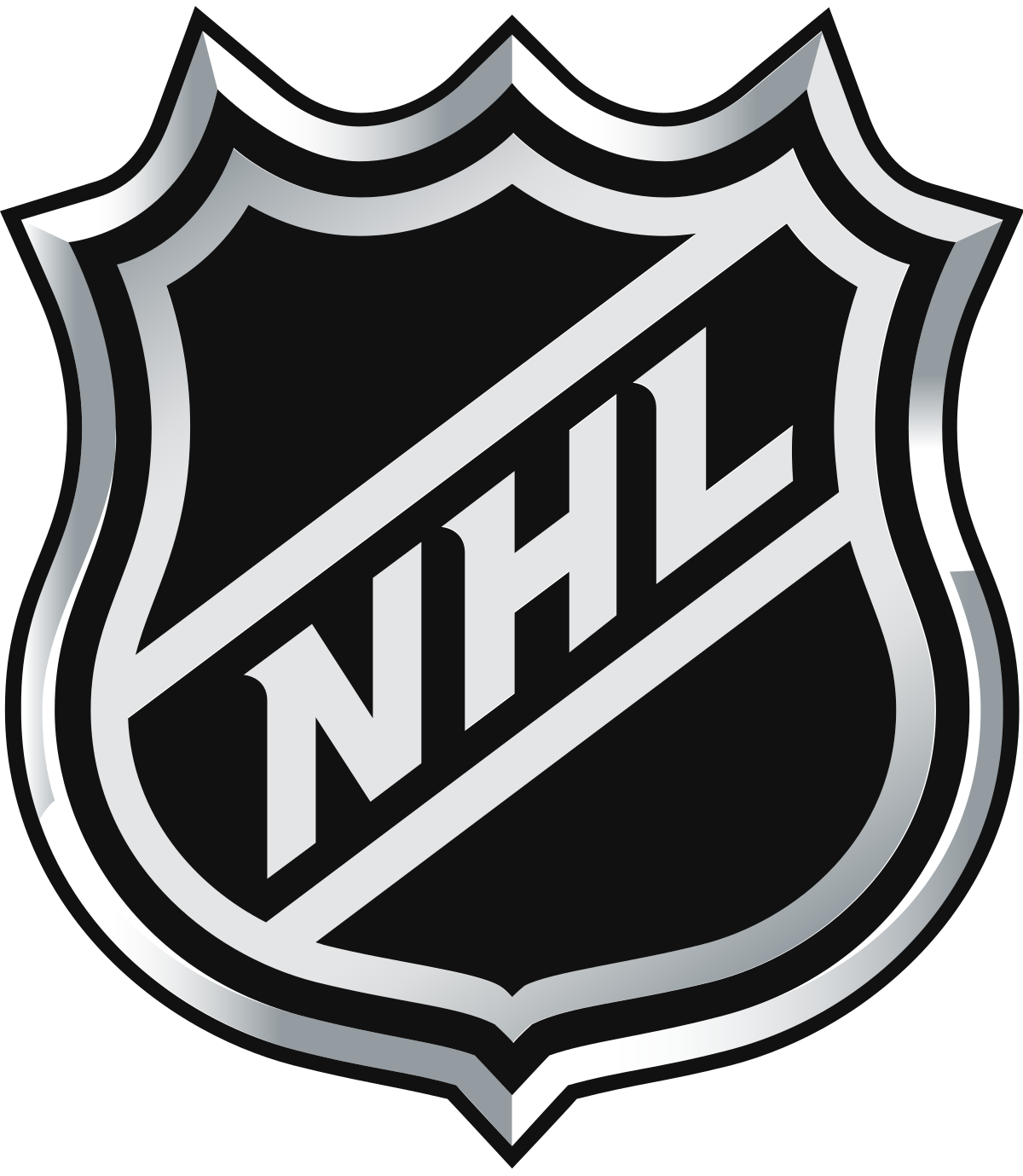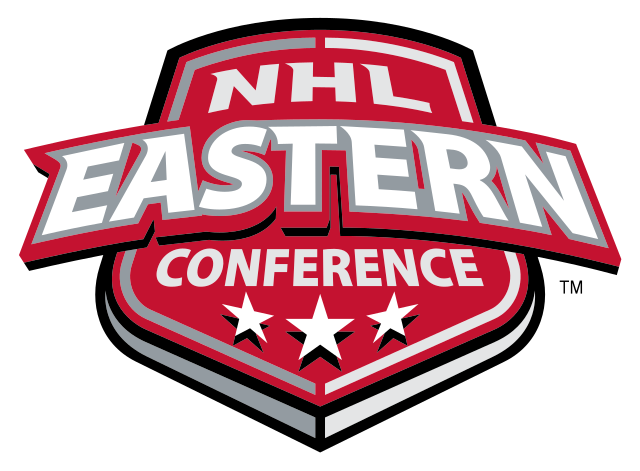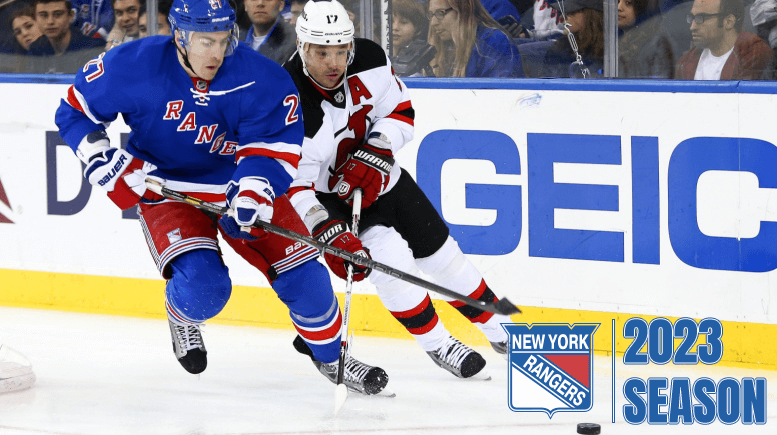Understanding The NHL
The National Hockey League (NHL), is regarded as the pinnacle of professional ice hockey, and one of North America's major sports leagues. Known for its speed, skill, and intensity, the NHL brings together the finest hockey talent from across the globe, offering fans heart-pumping action and unforgettable moments.
There are plenty of options available at the best NHL betting sites for fans who want to wager on hockey, with all of New York’s top sportsbooks offering the chance to make this fast-paced and exciting sport even more entertaining.
The NHL comprises 32 teams, split evenly between the Eastern and Western Conferences. Each team is a franchise operating within a specific city, and the league itself is governed by a Commissioner. The NHL's operations extend beyond just organizing games; it's responsible for setting rules, player contracts, and ensuring the smooth running of the entire league.
The NHL Season Structure
The structure of the NHL season is designed to balance competitiveness, entertainment, and the physical demands on players. It consists of two primary phases: the regular season and the playoffs.
 The NHL Regular Season
The NHL Regular Season
The regular season typically begins in early October and concludes in early April. Each of the 32 teams plays 82 games, split evenly between home and away games.
These games include matchups against teams within the same division, conference, and also against teams from the opposite conference. This variety ensures that each team faces every other team in the league at least twice during the season.
The NHL uses a points system to rank teams. A team earns two points for a win, one point for an overtime or shootout loss, and no points for a loss in regulation time. This system determines standings within the divisions and conferences.
The regular season standings are crucial as they determine playoff seeding. The top three teams in each division automatically qualify for the playoffs, with two additional "wild card" spots in each conference awarded to the next two highest-placed teams in the conference standings regardless of division.
 The NHL Playoffs
The NHL Playoffs
The Stanley Cup playoffs is an elimination tournament that follows the regular season. Sixteen teams qualify for the playoffs: the top three teams from each division and two wild card teams from each conference.
The playoffs consist of four rounds: the First Round, Second Round (often referred to as the Divisional Semifinals and Finals), Conference Finals, and the Stanley Cup Final.
Each playoff series is a best-of-seven format, meaning that the first team to win four games advances to the next round. The higher-seeded team typically has the home-ice advantage, hosting the first two games.
The climax of the NHL season is the Stanley Cup Final, where the champions of the Eastern and Western Conferences face off. The winner is awarded the Stanley Cup, the oldest professional sports trophy in North America.
Recent Stanley Cup Champions
🏆 2024 | TBD: June 2024 |
🏆 2023 | Vegas Golden Knights defeated Florida Panthers |
🏆 2022 | Colorado Avalanche defeated Tampa Bay Lightning |
🏆 2021 | Tampa Bay Lightning defeated Montreal Canadiens |
🏆 2020 | Tampa Bay Lightning defeated Dallas Stars |
🏆 2019 | St. Louis Blues defeated Boston Bruins |
🏆 2018 | Washington Capitals defeated Vegas Golden Knights |
🏆 2017 | Pittsburgh Penguins defeated Nashville Predators |
🏆 2016 | Pittsburgh Penguins defeated San Jose Sharks |
🏆 2015 | Chicago Blackhawks defeated Tampa Bay Lightning |
🏆 2014 | Los Angeles Kings defeated New York Rangers |
NHL Conferences & Divisions
The National Hockey League (NHL) is divided into two primary conferences: the Eastern Conference and the Western Conference.
Each conference is further divided into two divisions, and each division comprises a group of teams. The conferences play a crucial role in organizing the league's schedule and the playoff structure.
During the regular season, teams play a majority of their games within their own conference and division. This setup not only helps to reduce travel strain but also fosters regional rivalries, making for compelling matchups and fan engagement.
Once the season reaches the playoffs, the conference structure plays another pivotal role. The playoff bracket is set up primarily along conference lines, with the top teams from each division getting seeded in the playoff bracket.
The first two rounds of the playoffs typically involve matchups within the same division, leading to conference finals, and eventually the Stanley Cup Final between the Eastern and Western Conference champions.
 Eastern Conference
Eastern Conference
The Eastern Conference includes a mix of historic franchises with deep-rooted fan bases and newer teams that have expanded the league's geographic and cultural reach. Teams in the Eastern Conference compete fiercely for playoff spots, often culminating in intense and memorable postseason battles.
The road to the Stanley Cup often features Eastern Conference teams having to overcome long-standing rivals, making for dramatic and high-stakes hockey. Winning the Eastern Conference playoffs means a team is awarded the prince of Wales Trophy and advances to the Stanley Cup finals.
🏒 Metropolitan Division
This division features teams primarily located in the northeastern United States. It includes historically significant teams and has been known for intense rivalries. Teams in the Metropolitan Division are:
Carolina Hurricanes
Columbus Blue Jackets
New Jersey Devils
New York Islanders
New York Rangers
Philadelphia Flyers
Pittsburgh Penguins
Washington Capitals
🏒 Atlantic Division
This division is a blend of some of the oldest and most successful franchises in NHL history, along with newer, rapidly growing teams. The division's Canadian teams are part of the heart of Canadian hockey culture and have a passionate, international fan base. Teams currently playing in the Atlantic Division are:
Boston Bruins
Buffalo Sabres
Detroit Red Wings
Florida Panthers
Montreal Canadiens
Ottawa Senators
Tampa Bay Lightning
Toronto Maple Leafs
 Western Conference
Western Conference
The Western Conference of the NHL represents a significant part of the league's identity, offering a blend of traditional hockey markets and expanding new ones, fostering intense rivalries, and showcasing a wide variety of hockey styles and strategies. The winner of the Western Conference playoffs is awarded the Clarence S. Campbell Bowl.
Teams in the Western Conference face a challenging path to the Stanley Cup, often having to overcome long distances for travel and intense divisional rivalries. Despite this, the conference has produced several recent Stanley Cup champions and is known for its unpredictability and the high caliber of hockey, especially in the postseason.
🏒 Central Division
Featuring teams from the central part of the North American continent, this division is known for its geographic diversity and competitive balance. Central teams typically showcase both strong offensive and defensive capabilities and matches involve a high level of physicality and skill. Teams currently playing in this division are:
Arizona Coyotes
Chicago Blackhawks
Colorado Avalanche
Dallas Stars
Minnesota Wild
Nashville Predators
St. Louis Blues
Winnipeg Jets
🏒 Pacific Division
This division includes teams primarily located on the west coast of North America. It's characterized by its travel demands due to the spread-out locations of its franchises. The division includes some of the NHL’s newer expansion teams which have delivered impressive performances and quickly built strong fan bases. Pacific Division teams are as follows:
Anaheim Ducks
Calgary Flames
Edmonton Oilers
Los Angeles Kings
San Jose Sharks
Seattle Kraken
Vancouver Canucks
Vegas Golden Knights
History of the NHL
Throughout its history, the NHL has grown from a small league in Canada to one of the major professional sports leagues in North America, with a significant global following. Its evolution mirrors changes in sports entertainment, business, and culture, making it an integral part of today’s sports landscape.
Foundation and Early Years (1917-1942)
The NHL was founded on November 26, 1917, in Montreal, Quebec, Canada, after the suspension of its predecessor, the National Hockey Association (NHA). The league initially consisted of four teams, all based in Canada.
The Boston Bruins became the first American team to join the NHL in 1924. This marked the beginning of the League's expansion into the United States.
Significant rule changes, such as the introduction of the forward pass in the 1929-30 season, evolved the game, ultimately contributing to today's fast-paced and exciting hockey.
The Original Six Era (1942-1967)
By the 1942-43 season, the NHL had grown to include six teams: the Montreal Canadiens, Toronto Maple Leafs, Boston Bruins, Chicago Blackhawks, Detroit Red Wings, and New York Rangers.
This era was characterized by intense rivalries and dominant performances, particularly by teams like the Canadiens and the Maple Leafs.
Expansion and Growth (1967-present)
In 1967, the NHL underwent a significant expansion, doubling in size from six to twelve teams. This expansion included new franchises like the Philadelphia Flyers, Pittsburgh Penguins, and Los Angeles Kings. The league then continued to expand throughout the 1970s and 1980s, reaching new markets in the United States and Canada.
In the 1990s and 2000s, the NHL further expanded into the southern United States, particularly into sun- belt states, with teams like the Tampa Bay Lightning, Florida Panthers, and Nashville Predators, broadening the sport's geographic reach.
The Modern Era and Global Impact
Over the last decade, the NHL has become more international, with an increasing number of players coming from Europe and other parts of the world. The game itself has also evolved with changes in strategy, speed, and technology, including the use of video replay and advanced analytics used by teams to enhance gameplay and strategy.
The league has continued to evolve with the introduction of new teams, such as the Vegas Golden Knights in 2017 and the Seattle Kraken in 2021, and adaptations to new challenges, including the impact of global events like the COVID-19 pandemic.
Most Successful NHL Teams
In the NHL, success can be measured in various ways, including Stanley Cup victories, overall performance, and consistency over the years. While fans would debate what constitutes success, the ultimate prize for NHL teams is Stanley Cup championships.
1. Montreal Canadiens: 24 Stanley Cup Titles
The Canadiens are the most successful team in NHL history in terms of Stanley Cup wins, although they haven’t lifted the trophy since 1993. However, the team's long history of success has made them a cornerstone franchise in the NHL.
2. Toronto Maple Leafs: 13 Stanley Cup Titles
Another Canadian franchise, the Maple Leafs rank second in total Stanley Cup victories. However, their most recent win dates back to 1967, and they have experienced a lengthy championship drought since then, which some may argue makes them less relevant in the modern era.
3. Detroit Red Wings: 11 Stanley Cup Titles
The Red Wings are the most successful American team in NHL history. They have had several periods of dominance, notably in the 1950s and the late 1990s and early 2000s, and last won the Stanley Cup in 2008.
4. Boston Bruins: 6 Stanley Cup Titles
One of the "Original Six" teams, the Bruins have a rich history in the league, with periods of success across different eras. They last claimed the title in 2011, with two unsuccessful final appearances since then.
5. Chicago Blackhawks: 6 Stanley Cup Titles
Another of the longest established American teams, the Blackhawks experienced a resurgence in the early 2010s, winning three championships in six years (2010, 2013, and 2015), ending a drought that had lasted since 1961.
6. Edmonton Oilers: 5 stanley Cup Titles
Dominant in the 1980s, largely thanks to a team that included some of the greatest players in hockey history, the Oilers haven’t won a title since 1990.
7. Pittsburgh Penguins: 5 stanley Cup Titles
The Penguins, with stars like Mario Lemieux and Sidney Crosby, have been strong contenders over the last couple of decades, with a notable era of success including back to back championship wins in 2016 and 2017.
New York’s NHL Teams
New York is home to three NHL teams, and their close proximity means there are some of the most intense rivalries in the league between them.
New York Rangers
Founded in 1926, and playing out of Madison Square Garden, the Rangers are one of the NHL's "Original Six" franchises. They have won the Stanley Cup 4 times, the same as state rivals the Islanders, with their most recent victory coming in 1994.
The Rangers have a storied history and are known for their passionate fan base. They've had numerous Hall of Famers and legendary players don their jersey over the years, including Mark Messier, Brian Leetch, and Henrik Lundqvist.
New York Islanders
Founded in 1972, the Islanders hail from the New York metropolitan area and have played in various arenas, most notably the Nassau Coliseum and, more recently, the UBS Arena at Belmont Park.
The Islanders are famous for their dynasty in the early 1980s, when they won four consecutive Stanley Cups from 1980 to 1983, which remain their only wins to date. Key figures from that era include Mike Bossy, Bryan Trottier, and Denis Potvin.
The Islanders’ rivalry with the New York Rangers, known as the "Battle of New York," is one of the most intense in the NHL.
Buffalo Sabres
While the Sabres have not won a Stanley Cup, they have a rich history with several playoff appearances and conference championships since joining the league in 1970. Notable players in their history include Gilbert Perreault, Dominik Hasek, and Ryan Miller.
Being based in the North West of the state means the Sabres have more fierce rivalries with teams like the Toronto Maple Leafs and Boston Bruins than the other two NY franchises, stemming from geographic proximity, as well as historical playoff matchups.
Most Successful NHL Players
The NHL has been home to many legendary players over the years, revered not just for their statistical achievements but also for their ability to transform and impact the game, leaving lasting legacies in the world of hockey.
1. Wayne Gretzky
Often called "The Great One," Gretzky is widely considered the greatest hockey player of all time. He holds numerous NHL records, including most career goals, assists, and points. Gretzky won four Stanley Cups with the Edmonton Oilers and earned the Hart Trophy as the league's MVP nine times.
2. Gordie Howe
Known as "Mr. Hockey," Gordie Howe's NHL career spanned five decades. He was famous for his scoring prowess, physical strength, and longevity in the game. Howe won four Stanley Cups with the Detroit Red Wings and was a six-time league MVP.
3. Bobby Orr
Orr is widely considered to have revolutionized the defenseman position with his offensive capabilities. Playing for the Boston Bruins, he remains the only defenseman to have won the league scoring title, which he did twice. Orr's career was cut short by injuries, but his impact on the game is immeasurable.
4. Mario Lemieux
Lemieux is known for his incredible skill and ability to dominate games. Despite battling health issues throughout his career, he led the Pittsburgh Penguins to two Stanley Cups and won three Hart Trophies as league MVP.
5. Sidney Crosby
As a leader and a prolific scorer, Crosby has been a central figure in the NHL since his debut in 2005. He has led the Pittsburgh Penguins to multiple Stanley Cup victories and has won numerous individual awards, including multiple Hart Trophies.
6. Bobby Hull
Known for his fast skating and powerful shot, Hull was a dominant force in the NHL. He led the league in scoring seven times and won the Hart Trophy twice, playing primarily for the Chicago Blackhawks.
7. Jean Béliveau
Béliveau's elegance on the ice and leadership qualities made him a standout player. He won 10 Stanley Cups with the Montreal Canadiens and was a two-time Hart Trophy winner.
8. Maurice Richard
"The Rocket" was the first player in NHL history to score 50 goals in a season and 500 in his career. He won eight Stanley Cups with the Montreal Canadiens and was known for his fierce competitive spirit.
9. Mark Messier
Known for his leadership and clutch playoff performances, Messier won six Stanley Cups during his career with the Edmonton Oilers and New York Rangers. He is second only to Gretzky in career points.
10. Patrick Roy
One of the greatest goaltenders in NHL history, Roy won four Stanley Cups and three Conn Smythe Trophies as playoff MVP. He played for the Montreal Canadiens and Colorado Avalanche.

 Boston Bruins
Boston Bruins Buffalo Sabres
Buffalo Sabres Detroit Red Wings
Detroit Red Wings Florida Panthers
Florida Panthers Montreal Canadiens
Montreal Canadiens Ottawa Senators
Ottawa Senators Tampa Bay Lightning
Tampa Bay Lightning Toronto Maple Leafs
Toronto Maple Leafs Carolina Hurricanes
Carolina Hurricanes Columbus Blue Jackets
Columbus Blue Jackets New Jersey Devils
New Jersey Devils New York Islanders
New York Islanders New York Rangers
New York Rangers Philadelphia Flyers
Philadelphia Flyers Pittsburgh Penguins
Pittsburgh Penguins Washington Capitals
Washington Capitals Arizona Coyotes
Arizona Coyotes Chicago Blackhawks
Chicago Blackhawks Colorado Avalanche
Colorado Avalanche Dallas Stars
Dallas Stars Minnesota Wild
Minnesota Wild Nashville Predators
Nashville Predators St. Louis Blues
St. Louis Blues Winnipeg Jets
Winnipeg Jets Anaheim Ducks
Anaheim Ducks Calgary Flames
Calgary Flames Edmonton Oilers
Edmonton Oilers Los Angeles Kings
Los Angeles Kings San Jose Sharks
San Jose Sharks Seattle Kraken
Seattle Kraken Vancouver Canucks
Vancouver Canucks Vegas Golden Knights
Vegas Golden Knights




